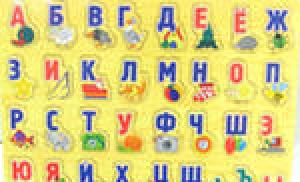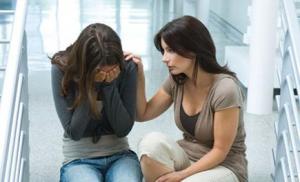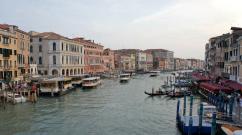When are parental memorial days in the year? Joy for those who have risen
The celebration of Radunitsa or parent's day is a spiritual celebration of the funeral of the dead, which has its origins in primitive pagan times. Orthodox religion supported this tradition and included it in the list of Orthodox Christian holidays. In accordance with church statute, this festival is celebrated on the ninth day after the Resurrection of Christ on the second day of St. Thomas Week. This is the first working day after Clear Easter Week. If one or another celebration occurs on this day, the celebration of Radunitsa is postponed to the next day. Thus, in a similar way it is possible to establish the date of the celebration of Radunitsa in 2017. The Resurrection of Christ in Russia in 2017 is celebrated on April 16. We count down nine days and we get that the celebration of parent's day will take place April 25, 2017.
HISTORY AND CUSTOMS OF CELEBRATING PARENTS' DAY.

These celebrations were celebrated among the Slavs in ancient times. At first, the very name Radonitsa (radonitsa, funeral feast) referred to deities who embodied the veneration of the dead, guardians of the souls of deceased ancestors. Sacrifices were made to the Radonians, abundant celebrations and libations were held in their honor on the funeral hills, so that the deceased could appreciate the respect with which the survivors treated him. Over time, the term “trizna” began to mean a memorial, and “radonitsa” - the spring commemoration of the dead. This custom was adopted by the Russian Orthodox Church. The word “radonitsa” comes from a combination of the words “joy” and “kind”. This celebration occupies a prominent place immediately after the celebration of Light Easter week and obliges Orthodox believers not to indulge too much in sadness for those who have passed into another world, but to rejoice in their eternal life together with the Lord God. The entire Christian world celebrates the Resurrection of Christ, his triumph over earthly death, and then, nine days later, believers celebrate the rebirth of their ancestors, relatives and friends to a new life, remembering them on a special day - Radunitsa. Death in Christianity is associated with eternity, souls have no term, they live forever in heaven and rejoice for living people. The rebirth of Christ, as a symbol of the victory of life over death, displaces the sadness of parting with loved ones.
“They plow in the radon field in the morning, cry during the day, and jump in the evening,” that is, they engage in various types of work, visit burial sites and have fun in the evening. This celebration has long become a secular day of remembrance, in contrast to church parental Saturdays.
Cemeteries are areas consecrated by the church where the dead are kept awaiting the upcoming resurrection. According to the customs and laws of pagan states and peoples, burial places were considered sacred and inviolable, violation of which was punishable by different kinds punishments. From ancient pagan times, a tradition has been preserved to mark the burial site by raising a hill over it. In development of this custom, the Christian Church decorates the grave mound with the victorious sign of our salvation - a cross depicted on the gravestone or installed above the tombstone.
We call our dead departed, not deceased, because at a certain time they will rise from the grave. The grave is the place of the future resurrection, and therefore it is necessary to keep it clean and orderly.
Cross on the grave Orthodox Christian- a silent preacher of blessed immortality and resurrection. Planted in the ground and rising towards the sky, it signifies the faith of Christians that the body of the deceased is here in the earth, and the soul is in heaven, that under the cross is hidden a seed that grows for eternal life in the Kingdom of God. The cross on the grave is placed at the feet of the deceased so that the Crucifix is facing the face of the deceased. We must especially ensure that the cross on the grave is not askew, that it is always painted, clean and well-groomed.

There are only eight parenting days in a year and seven of them fall on Saturdays and are called parental Saturdays. Radunitsa 2017 is the most important of them for every Orthodox Christian. It reminds us to care for the souls of our ancestors. It is believed that this is a day of joy because the dead go to a new eternal life. The custom of commemorating the dead is not specifically followed in the Charter. It is based on the fact that on St. Thomas Week the descent of Christ into hell is remembered, and from Monday on St. Thomas Week, the Charter allows for the beginning of the celebration of forty-ones for the dead - the living rejoice in the good news of the Resurrection with the dead. It is imperative to know the date of parent's day in order to take the opportunity to remember your deceased relatives, friends and acquaintances, remember them, visit the cemeteries where they are buried and clean up the graves.
WHAT SHOULD YOU DO ON PARENTS' DAY 2017?
Quite a significant number of people visit relatives and friends at the cemetery on Easter. Many, unfortunately, adhere to the tradition of accompanying visits to the dead with excessive consumption. alcoholic drinks. And those who don’t do this very often don’t even know when to Easter days it is possible (and necessary) to remember the dead. The first commemoration of the deceased after Easter takes place on the second Easter week (week), after St. Thomas Sunday, on Tuesday. And the widespread tradition of going to the cemetery on the Easter holiday itself is in conflict with the liturgical charter of the Church on the grounds that one should not allow a mixture of mournful funereal and solemn celebratory things: before the ninth day from Easter, commemoration of the dead cannot be performed. If a person passes into another world on Easter, then he is buried according to a special Easter rite.
At the same time, on Radonitsa there is a custom of celebrating Easter at the graves of the dead, where they bring Easter cakes, painted eggs and other Easter dishes. Traditionally, the number of dishes should be odd. There a funeral meal is served and part of what is prepared is given to the poor in the form of alms for the funeral of the soul. At the cemetery there is real, living, everyday communication with the dead. They share with them the joys and sorrows that have happened since the last visit to the cemetery. In addition, when you come to the cemetery on Parents' Day, you need to light a candle and pray intensely. To perform litia during the commemoration of the dead, a priest should be invited. You can also read the Akathist about the repose of the dead. Then you need to clean up the grave, be silent for a while, remembering the deceased. The Church condemns some folk customs happening on this day. There is no need to drink or eat in a cemetery, it is unacceptable to pour alcohol on a grave mound - these actions are offensive memory of the dead. The tradition of leaving a glass of vodka with bread on a grave is a relic of pagan culture and should not be observed in Christian Orthodox families. It is better to give food to the poor or hungry. Let them pray for our departed, and then the Lord may send some consolation to our relatives. But despite this, many people, like their ancestors, come to the cemetery to sip and pour for the deceased themselves.
Prayer for the departed is the greatest and most important thing we can do for those who have passed on to another world. By and large, the deceased does not need either a coffin or a monument - all this is a tribute to traditions, albeit pious ones. But the ever-living soul of the deceased experiences a great need for our constant prayer, because it itself cannot do good deeds with which it would be able to appease God. That is why prayer at home for loved ones, prayer in the cemetery at the grave of the deceased is the duty of every Orthodox Christian.
Commemoration in the Church provides special assistance to the deceased. Before visiting the cemetery, one of the relatives should come to the church at the beginning of the service, submit a note with the name of the deceased for commemoration at the altar (it is best if this is commemorated at a proskomedia, when a piece is taken out of a special prosphora for the deceased, and then in a sign of the washing away of his sins will be lowered into the Chalice with the Holy Gifts). After the liturgy, a memorial service must be celebrated.
In some regions Russian Federation Radonitsa was a day of home and church commemoration, when it was not customary to visit the dead in cemeteries. So in the north-east of Russia, as well as in some places in Belarus, they prepared a bathhouse for the dead, leaving water with a broom and clean linen for them, but they themselves did not wash or even enter the bathhouse. And in the morning they looked for traces of the dead in the ashes scattered on the floor.
Also on this day, the tradition of “calling out the rain” developed. Children used simple spells to summon the first spring rain. Folk omens claim that there was not a single Radonitsa Tuesday on which a few drops of rain did not fall. If after the spells it started to rain, then everyone began to wash themselves with “heavenly water”, which was supposed to bring happiness. If the first strikes on this day spring thunder, then young women and girls should wash themselves with rainwater through golden and silver rings. According to popular beliefs, this preserved beauty and youth for a long time.
TRADITIONS FOR RADONITSA.

Initially, this wonderful holiday was celebrated on some hill, hence the name Red Hill. For the festivities, the entire village gathered before dawn to honor the main deity - Yarilo. In the same place they organized cheerful celebrations with a rich table and many different entertainments and games. And as soon as the sun appeared, the whole village shouted: “Glory to Yarila! Hello, red sun!
It was also customary to invite spring earlier. In different villages one could hear every now and then: “Spring come to us! With joy, with mercy! With grainy rye, with curly oats, with mustachioed barley...” Many believed that if this was not done, the harvest would be meager and poor.
They also found time to go to the cemetery to visit deceased relatives. Just like today, the people carried a lot of dishes and boiled chicken eggs. However, our ancestors did not just place them under the grave. To begin with, they beat it on the grave, after which they cleaned it and buried the shell in the ground, and the egg itself was given to the poor.
It is worth noting that previously Radonitsa was celebrated for more than one day, so the whole village walked, inviting other villages to visit. Be sure to treat everyone with traditional dishes for this day - scrambled eggs, pancakes, loaves, various pies, in general, everything that was in the shape of a circle. The obligatory entertainment that day was rolling an egg down the mountain. Whoever's egg rolls the longest without breaking will be the happiest in the entire village.
Krasnaya Gorka was still a holiday of love, and all because this is the holiday when many young people gathered, not only from one village, sometimes even from several villages. The young people looked closely at each other, got to know each other, and some, in a playful and humorous manner, confessed their love or sympathy. Therefore, Radonitsa has always been a holiday of the birth of love and strong family. The girls prepared especially for this holiday - they dressed up in new beautiful clothes, weaved braids and wove flowers or even wreaths with ribbons into them. But staying at home on Radonitsa was considered bad omen In addition, in this case, young people did not miss the opportunity to mock such a person and come up with various funny nicknames. Many believed that whoever stayed at home on this day would definitely be unhappy in the coming year.
Married and adult women tried to prepare as much food as possible on this day in order to set aside some for temples and give the other part to the poor. Many believed that this could bring good luck in the coming year.
Krasnaya Gorka has always been considered the most successful day for a wedding, and not at all because of signs or superstitions, but because weddings depended on the sowing season. Therefore, they were noted or in early spring or late autumn before harvest. Perhaps because of this you can often hear that Radonitsa is Maiden's Day.
And for those who wooed on this holiday, there was a separate custom. To do this, all the youth in the village gathered and went in a crowd to the house, where they celebrated the matchmaking. Under the house they sang songs, and sometimes even showed performances, for which they were treated to delicious dishes from the table. And the girl and the guy who were matched together were called “the bindweed” and “the bindweed.”
Since rain on Radonitsa was a good omen, they tried to cause it. To do this, children on the street called out to him: “Water, rain, on woman’s rye, on grandfather’s wheat, on girl’s flax, water with a bucket.” Or: “Rain, rain, let it fall harder, quickly, warm us guys up!”
If it did start to rain, then all the people went out into the street and washed themselves with this water for good luck, and the girl always took silver rings with her and washed herself with them too.
SIGNS FOR RADONITSA 2017.
It was considered a bad omen if you did not come to your family’s grave on that day. They believed that no one would remember or remember this person after death.
Under no circumstances should any work in the garden be started earlier. It was believed that this could lead to drought, crop failure and the death of one of the loved ones.
It was also a bad omen that it rained before lunch, after which the wind blew in the evening. In this case, it was believed that the ancestors were not happy that they were forgotten and did not come to the graves. But if you just go to Radonitsa it's raining, but there is no wind, then this means happiness in the house and a rich harvest.
The housewife who is the first to prepare the festive meal will be the first to reap the harvest, and her harvest will be richer than that of the others.
Our ancestors also believed that the family that came first to the cemetery would be the happiest of the year, and even possibly receive special wisdom that would help in solving many problems.
DIVINATION FOR RADONITSA 2017.
Fortune telling for Radonitsa 2017. On Radonitsa, unmarried girls got together and told fortunes. It should be noted that there were no clearly established rituals on Radonitsa; as a rule, girls used those fortune-telling that were used on all Christmastides. For example, girls tried to find out their fate with the help of a book.
In the spring, women wove wreaths from birch branches, and then went to the river to float it. They believed that wherever the wreath floated, the groom would come from there. If he lingered near the shore, then there would be no marriage this year, but if the wreath sank, then they assumed that there would be trouble. Many girls believed that in this case she would soon die.
One of the most common fortune telling was fortune telling on a birch branch. Single girls They went to the grove and picked one branch. Then before going to bed they put it under the pillow. Whoever comes in a dream that night will be her groom.
Video: Parents' Day 2017.
Throughout the year, funeral services and magpies are held in churches. People who have lost their parents touch the souls of their loved ones through these prayers. Remembering parents is the responsibility of every child and person, and everyone should do it properly.
Many people avoid churches and temples, considering them special market, where faith is traded and false ideals are implanted. Worldview and religion are a personal matter for every person who is an individual. God does not force people to believe in themselves; He shows people His miracles throughout life.
Orthodox funeral Saturdays in 2017: dates
Orthodox funeral Saturdays in 2017: where did the term “Parental Saturday” come from?
According to the canons of the church, it is believed that all people descended from Adam and Eve. Further, humanity dispersed to all ends of the Earth and passed on blood kinship. With base christian church the need to pray for the souls of deceased relatives was realized for this purpose. To atone for their earthly sins and pay tribute.
Saturday is the end of the seismic cycle and summing up the results of the week. During this period, it is important to remember your achievements. Set new goals and analyze mistakes. When you come to the temple, you can get detailed advice on all issues of interest and talk with your spiritual mentor. Confess.
In the event that the parishioner is a churchgoer, that is, he tries to maintain fasts, and comes to all services and communions. It will not be a secret for him that there are many “parental” Saturdays a year and prayer services can be ordered for the ministers of a church or monastery; to do this, you need to write on a piece of paper the names of departed parents, grandparents, and, if possible. Remember your family tree.
You can also take the psalter and independently ask the Lord for a favorable attitude towards your parents for forgiveness of their sins.
Orthodox memorial Saturdays in 2017: the difference between the “parental” and “ecumenical” memorial Saturday
One often hears the term “universal” Sabbath used colloquially to refer to each Sabbath day. This is wrong, here's why: there are only two ecumenical memorial days a year. During this period, you need to pray for the souls of your relatives and Christians in general, but you should not set limits and think only about blood and acquaintances. This covers everyone. On the eighteenth of February in the church it is necessary to carry out a flogging for the repose of all the deceased and to stand until the end of the service. The second is Trinity.
In order to receive the sacrament correctly. Needed the day before. Avoid eating animal products for at least a week. You should not swear and provoke scandals. After communion and a prayer service for the departed, do not gently eat seeds and fruits. From which the bones are spat out.
In addition, the holy fathers warn against interweaving pagan values into their understanding of religious canons; they say that God is one in many guises, he is love and one must adhere to some rituals. So as not to be confused and not to mislead others.
Trying to find out what date parent’s day is in the coming 2017, we invariably show a desire to pay honors to deceased relatives and friends. It is so important to pay tribute to their memory and respect. This helps maintain the connection between generations and is prerequisite spiritual life. Very little is required of us - to know when these days will be celebrated, only in this case can we adequately prepare for them.

What is Radonitsa?
Called Radonitsa or sometimes Radunitsa, this day is one of the special holidays set aside by the church to honor the dead. Such special days (there are 8 of them in a year) are celebrated on Saturdays, which is where their name comes from - “parental Saturdays”.
However, Radonitsa stands apart in the series of these memorable days, since for the most part it almost always falls on a Tuesday. The peculiarity of this most important parent's day of the year is not only that it is celebrated on Tuesday, but also that in terms of its significance it ranks first among all memorial days.
There is no exact date assigned to Radonitsa; every year the time of this day changes depending on when Easter is celebrated. Wanting to find out what date parent’s day is in 2017, you just need to count 9 days from Bright Day Christ's Sunday and we actually get the exact date Radonitsy. That is, in other words, this is the first Tuesday after Krasnaya Gorka (Fomina Sunday). Thus, the date of parent's day in 2017 falls on April 25.
Memorial days
In order to be able to timely honor the memory of deceased relatives and friends, taking care of their souls by reading prayers and visiting the cemetery in order to maintain order at the graves, you simply need to know exact days commemoration. Orthodox parenting days in 2017 fall on the following dates:

Now that you know the parents’ days to visit the cemetery in 2017, you will be able to properly prepare and arrange a memorial rite worthy of your deceased relatives and friends.
Origins and meaning of Radonitsa
According to the testimony of many scientists and biblical figures, including John Chrysostom, the history of Radonitsa goes back to ancient times. Back in pagan times it was great holiday remembrance of the deceased, carried out on a wide scale. On this day, people gathered at the burial mounds, held a funeral feast and noisy celebrations, trying to appease the souls of the deceased. This holiday is ingrained in the popular consciousness so deeply that official church after a long time, she recognized this day, elevating it to a special rank.
The meaning of this holiday is hidden in its name, which varies from person to person. Slavic peoples may sound different. These are Radovnitsa (some regions of Russia), and Mogilki, and Grobki (Ukraine), and Naviy Den (Belarus).
The joy of resurrection on special days
However, in any case, “Radonitsa” in its origin is equated to both the word “joy” and the concept of “kindred”. What kind of joy can we talk about on such a mournful day? The Church explains: when visiting the temple and graves of our ancestors on Radonitsa, we should not fall into despondency and melancholy, but rejoice for loved ones who appeared before the face of the Lord. They are now close to God and their souls rejoice, being in love and happiness.
So, why shouldn’t we, their descendants, rejoice for them by offering prayers? By tidying up the grave, we also perform a certain ritual action, symbolically meaning preparation for the resurrection of the soul.
The main thing that we must and can do on this day for deceased relatives is to devote sufficient time to prayers. If it is not possible to invite a priest to the grave to read the litiya (funeral prayer service), then you can do it yourself. It is prayers that our family and friends need, and not excessive eating and drinking of alcohol. This is what the Church teaches, and this is how you need to act according to your conscience and the dictates of your heart.
Procedure and basic rules
In the morning of any Mother's Day, Orthodox Christians go to church, taking with them a Lenten lunch, which is donated either to the church or to poor people who are in dire need of help. After holding the funeral service, they usually go to cemeteries, where they also read prayers and clean up. Traditions such as commemorating food and drinking directly at graves are still very strong. Traditionally, this can be understood, but the church is against such actions. In principle, everyone acts according to their own concepts, but still, organizing a drunken feast at graves is not a godly thing.
Radonitsa in Rus'
By the way, in Rus', towels and tablecloths were laid out on Radonitsa right on the grave mound, and, having laid out a rich meal, the whole family enjoyed the meal. We ate and drank so much that sometimes we immediately fell asleep. The list of obligatory dishes included those painted yellow or green color eggs, dry pies according to a special recipe, pancakes, porridge.
Before the start of the funeral feast, the head of the family rolled eggs along the grave and then buried one of them in the ground, as if allowing the deceased to join the Easter meal. It was obligatory to pour a glass of vodka on the grave, which is also not welcome modern church. After dinner, to which the beggars were always invited and treated, they remained in the cemetery for a short time, peacefully spending time in conversations, and only then went home. In the evening, the youth organized festivities with songs, dances and fun activities.
Signs and beliefs for parent's day
among the people great importance attached importance to the weather that fell on Radunitsa. We were especially looking forward to the rain.
- It was believed that the rain on this day had a special power - to preserve and prolong youth and health, beauty, prosperity, and happiness. Small children sang special songs to invite rain. If it really rained, they washed themselves with its water, exposing their face to the downpour. And the girls did this in a special way, passing rainwater through a gold or silver ring in order to be beautiful and happy.
- The rain foreshadowed a year rich in harvest.
- It was strictly forbidden to plant or sow anything on this day - this led to the possibility of losing the entire harvest.
- If it stood on Radonitsa warm weather, they said, “the parents breathed in warmth.”
By deepening our knowledge about parent's day, we will be able to take a different look at the meaning of this holiday of remembrance. And showing correct example to our children, we can hope that this tradition will be passed on further, uniting the representatives of the clan into a single whole.
Knowing the date of Parent's Day is necessary for every Christian who cares about his deceased relatives, friends, and acquaintances. Dates shift every year, so every year people update their calendars. So, what date is Parents' Day in 2017?
Parents day
For Orthodox Christians it is considered the most important date. Not a holiday that can be celebrated cheerfully, not an important event that must be attended. It is considered more personal, because each of the people has deceased relatives, also friends or acquaintances. Life is fleeting, but in Christianity they believe in the immortality of the soul and afterlife. It is believed that through prayers the living can help the dead. Find a way, encourage them, ask the Almighty to give them peace.
When will it be for 2017? And why, in fact, are such days called “parental days”? To accurately calculate the date of the event, you need to remember Easter. Here it comes on April 16, then you need to count exactly 9 days after it. Then Parents' Day will fall on April 25th.
History of the memorial day
This event has a lot different traditions, customs. For example, it is customary to visit cemeteries and remember all the deceased loved ones. Not necessarily just parents, but all relatives, friends, even acquaintances who managed to leave a mark during their lives and now live in their memories and hearts.
You cannot do ordinary things or solve everyday issues. The date is dedicated only to the dead. You can discuss them, remember some incidents; people usually say: “remember them only with a kind word.”

The memorial day is also called Radonitsa. This is an older, first name. Once upon a time, Radonitsa was called by the name of Radunitsa, a god who among the Slavs was considered a protector, protecting the souls of dead people. God was their guide, helping them quickly find eternal peace. For this, the living pagans revered God, thanking him for his constant hard work. And they asked them to be just as merciful and attentive when their time comes.
Yes, on Parent's Day deep roots, dating back to pagan times, when people worshiped the forces of nature and deified the world, trying to explain to myself how it works. The Sun and Moon seemed to them to be living deities, and the seasons also had their own personalities. They tried to appease many gods and brought various sacrifices and gifts. Easter, for example. After all, the pagans performed many rituals, trying to evoke spring and spend winter so that it would go away faster.
God Radunitsa also received gratitude, and delicious, varied dishes were prepared for him. A similar tradition, along with the ancient name, has been preserved; the only thing is that people then distribute the prepared dishes to those in need. Parents' Day is celebrated with delicious, fluffy Easter cakes, a variety of pies, treating all the poor and disadvantaged. Baked dishes are also taken to cemeteries, then they are left nearby on the graves of those visited by relatives and friends.

By the way, a memorial day is not at all considered a sad or mourning event. People give food to beggars, encourage others and smile. It is rather a bright, even joyful holiday, filled with memories and stories about loved ones. The day when their souls found the desired peace. It is believed that the living, on the contrary, should not cry when celebrating Radonitsa, but on the contrary, rejoice. Then the dead souls will stop worrying about the living and will be able to continue their journey there, beyond, and will find peace. After all, the connection between loved ones remains, no matter whether someone has died or is still alive.
Traditions for Parents' Day
The Church warns: you shouldn’t take a lot of people to the cemetery. delicious dishes and no alcoholic drinks. Some often go overboard, practically having a picnic among the graves. No, the dead cannot be helped to find peace in this way. Rather, it is a celebration of the living, gluttony with drinking alcohol. True remembrance: give food to the poor and be sure to read prayers. Visit the cemetery, leave some sweets. All.

Housewives bake Easter cakes, then, apart from this, no household work. In the morning, parishioners will definitely visit the church and take part in a special memorial liturgy. When this is not possible, you can light a special, sacred candle, read prayers, dedicating them to the souls of all deceased relatives, loved ones, acquaintances, and friends. After that, prepare some goodies and be sure to visit the cemetery. It is important to go to the graves in the company of loved ones, friends or relatives; solo visits are not welcome.
The memory of deceased parents and sincere prayers for their souls are an important support for a believer. Taking care that the spiritual connection between the deceased and the living is not interrupted, the Church appointed days called parental Saturdays. Almost all dates of memorial days are “floating”. After all, they are tied to the greats church holidays(Easter, Pentecost). About when they will memorial days 2017, orthodox calendar reminds us. There are certain patterns and rules associated with each memorial day. They will be discussed further below.
All memorial days of 2017 (calendar)

Parents' Memorial Day falls on Saturday. But this pattern is not an immutable rule. For example, Radonitsa is a weekday holiday (Tuesday). So that an inexperienced person does not have confusion in his mind, we list the days set aside by the Church for the commemoration of deceased relatives:
|
Name of the memorial day |
date |
|
Meat Saturday |
|
|
Parents' Saturday of the second week |
|
|
Funeral Saturday of the third week |
|
|
Parents' Saturday of the fourth week |
|
|
Radonitsa (falls on Tuesday) |
|
|
The day when fallen soldiers are remembered |
|
|
Trinity Saturday |
|
|
Day of Remembrance of Orthodox Warriors |
|
|
Dmitrievskaya Saturday |
In the bustle modern life some people simply cannot find time to celebrate all of the listed days in a proper manner - visit church, clean up the graves of deceased relatives. It happens that on parent’s day someone needs to go on a business trip or devote all their attention to a sick child. It is important to honor the memory of the deceased at least on such significant days as Radonitsa and Ecumenical Parental Saturdays.
A little about the meaning of memorial days
“Why is the Saturday set aside by the Church for commemoration called Ecumenical?” – people often ask. Two Saturdays with this name are intended by the Church to commemorate all deceased ancestors and all brothers in faith.
The first Saturday with the name “Ecumenical” falls on the eighteenth of February. Second funeral Saturday close to the Trinity (people will pray for deceased relatives and clean up their graves on the third of June). On these serious days, a believer should visit church, pray, and give alms to those who need it.
Another important holiday(we will celebrate it nine days after Easter) - Radonitsa. When figuring out when memorial days are in 2017 in Ukraine, most people will immediately remember this majestic and joyful holiday. This is not surprising: the Slavs celebrated Radonitsa on a special scale back in the era of paganism. Orthodox Church ennobled this day, giving it a more restrained tone. But even now Radonitsa is considered more a joyful holiday than a mournful one. After all, the souls of our deceased relatives are in better world, to whom injustice is alien. This means that there is no point in lamenting sorrowfully, remembering those we loved.
What you need to do on parent's day
What is desirable to do in parent's Saturday:
- Visiting church. While in church, submit a note in memory of your deceased parents.
- A trip to the cemetery. At the graves of relatives, you should first pray. Then don’t forget to clean up the grave: pull out the dried grass, take dried flowers and everything that is no longer needed at the grave to a special place.
- Treating people in need.
Funeral meal: what should be prepared
When thinking about the dishes that you will prepare for the funeral, it is worth considering what significance this or that memorial day carries in itself in 2017, what date it is celebrated. If the day you are interested in falls on fasting, you will have to give up meat.
Let us remind you what dishes are traditional for memorial days:

What should you give up on your funeral day?
Having learned when the memorial days are in 2017, Orthodox Christians check with church ministers what actions are incompatible with the atmosphere of commemoration of relatives. On Parents' Saturday, refrain from such “provocations”:
- Conflicts, gossip.
- Violent manifestations of melancholy (wailing, nervous breakdown).
- Excessive consumption of wine. Let us remind you that ideally there should be no vodka at all in the cemetery and on funeral tables.
Additionally













